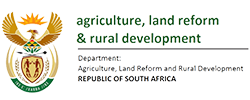Commentary: Has the South African agricultural industry benefited from the African Growth Opportunity Act (AGOA)?
By Onele Tshitiza
The African Growth Opportunity Act (AGOA) was established in May 2000, to give preferential access to 48 sub-Saharan African countries into the United States of America’s (USA) market. The benefit consists of lower tariffs or no tariffs on some products along 6500 tariff lines with a goal “to promote stable and sustainable economic growth and development in sub-Saharan Africa” (AGOA, 2000). The United States (USA) saw the legislation as opportunity to encourage trade and investment in sub-Saharan African countries and increase market access into the USA through trade preferences and reduced tariff and non-tariff barriers. The legislation was initially to end in 2008, but was amended to extend to 2015, and has recently been extended to 2025.
The criteria to be eligible according to section 104 of the Act consists amongst others that the sub-Saharan country has established or made continual progress in implementing a market-based economy, where property rights are also protected and the government does not interfere with the economy; rule of law; eliminating barriers to trade and investment for the USA including resolving trade and investment disputes; economic policies that seek to benefit
the welfare of the citizens and develop the economy; combat corruption; protect human rights; and not compromise or support activities that harm the USA. The President of the USA can review the eligibility of each country and further terminate the designation of a country if they deem it is not meeting the requirements. According to a report by the Department of International Relations and Cooperation of South Africa (2016), the total tariff revenue that South African exporters were relieved of paying as a result of AGOA was about R2 billion in 2014 and agriculture, in particular, was relieved of paying duties amounting to about R86.3 million. Notably, South Africa exported R 84.1 billion worth of products to the USA in 2018, of which R5.1 billion was agriculture. South Africa imported R72.7 billion worth of products from the USA in and agriculture made up R4.1 billion. Some of the top performers of specific agricultural products that have been exported to the USA in the last 10 years are wines of fresh grapes, fresh or dried oranges, dried grapes, etc. Noteworthy is that macadamia nuts have surpassed all these other products in terms of value, although data shows they started trading in 2012. Shelled fresh or dried macadamia nuts exports were worth the largest value in agricultural products in 2018, with a value of R1.19 billion, followed by wine of fresh grapes valued at R481.1 million and fresh or dried oranges (R453.3 million). However, in 2015, there were tensions between South Africa and the USA over issues of imports of meat products such as beef, poultry and pork into South Africa.
There was therefore an out-of-cycle review under the Trade Preferences Extension Act of 2015 (TPEA) on whether South Africa was eligible to receive benefits under AGOA, following concerns over its protection on imports. This matter was resolved by South Africa lifting bans on beef and pork and the two countries agreed on an annual quota of 65 000 tons of frozen bone-in chicken imports from the USA duty-free into South Africa. In 2018 and 2019, South Africa saw itself in contention again with the USA where its status was reviewed under the Generalized System of Preferences, but the matter was being addressed by the two governments and no substantial decisions had been reached yet. Subsequent to the South African poultry industry’s plea to the government for further protection of local producers from increasing poultry imports, in March 2020, the Department of Finance approved the increase of import tariffs to 42% and 62% on frozen chicken cuts, as was recommdend by ITAC. The updated duties would also be applicable to the USA, however the annual import quota of 65 000 tons would not be affected. The AGOA opened up the USA market for the South African economy and the returns have been substantial. In 2018, South Africa had a positive trade balance of R11.4 billion from trading products with the USA. It is through positive interactions that South Africa and the USA have maintained good relations and resolved their differences.
The results have been that both economies have gained from trading with each another in one way or another. Tariff barriers for both countries were reduced through AGOA, like South Africa being relieved of approximately R2 billion in tariffs. The AGOA has therefore achieved some of its objectives and continues to facilitate for further trade and investment between the two
countries.


